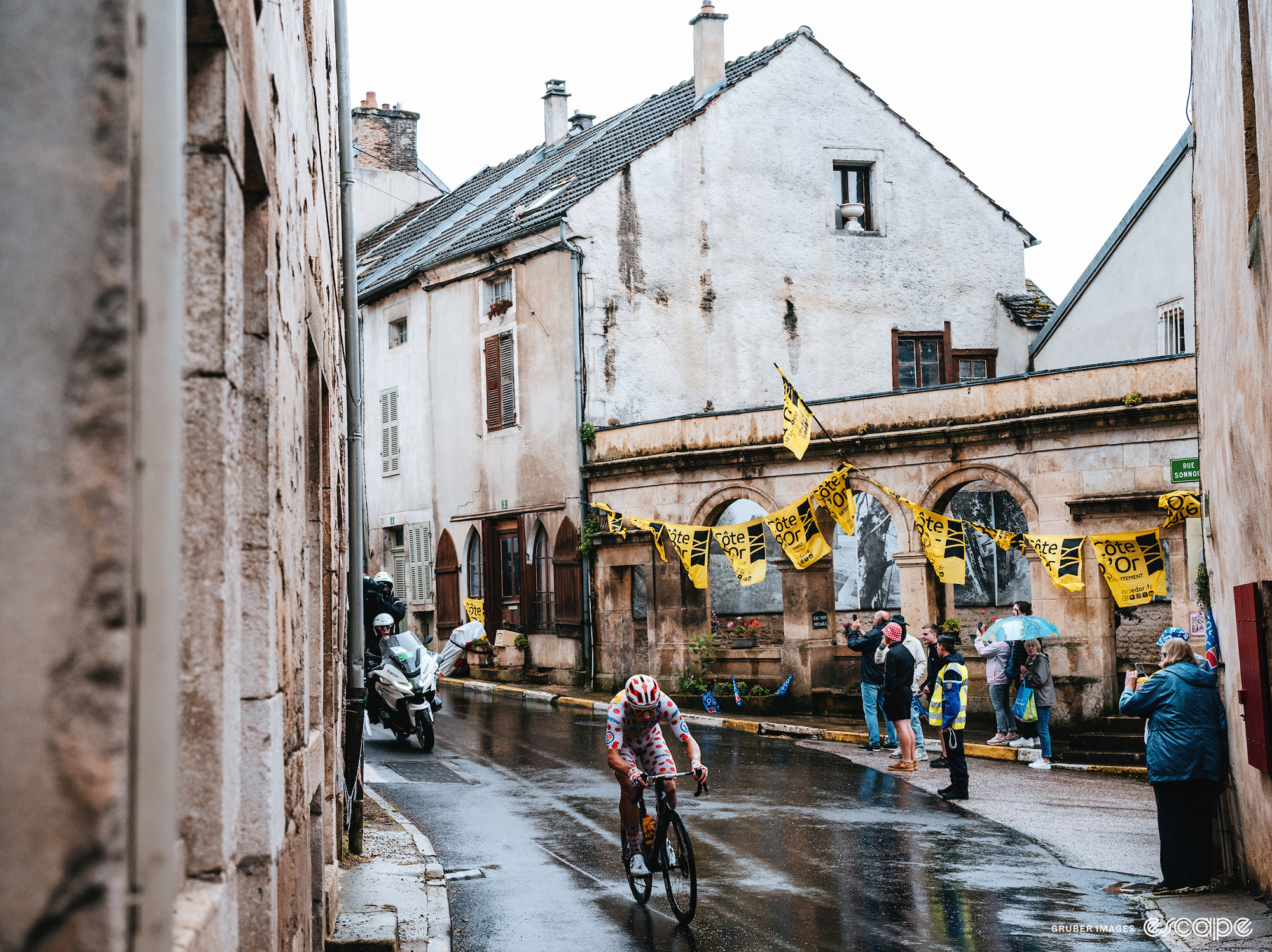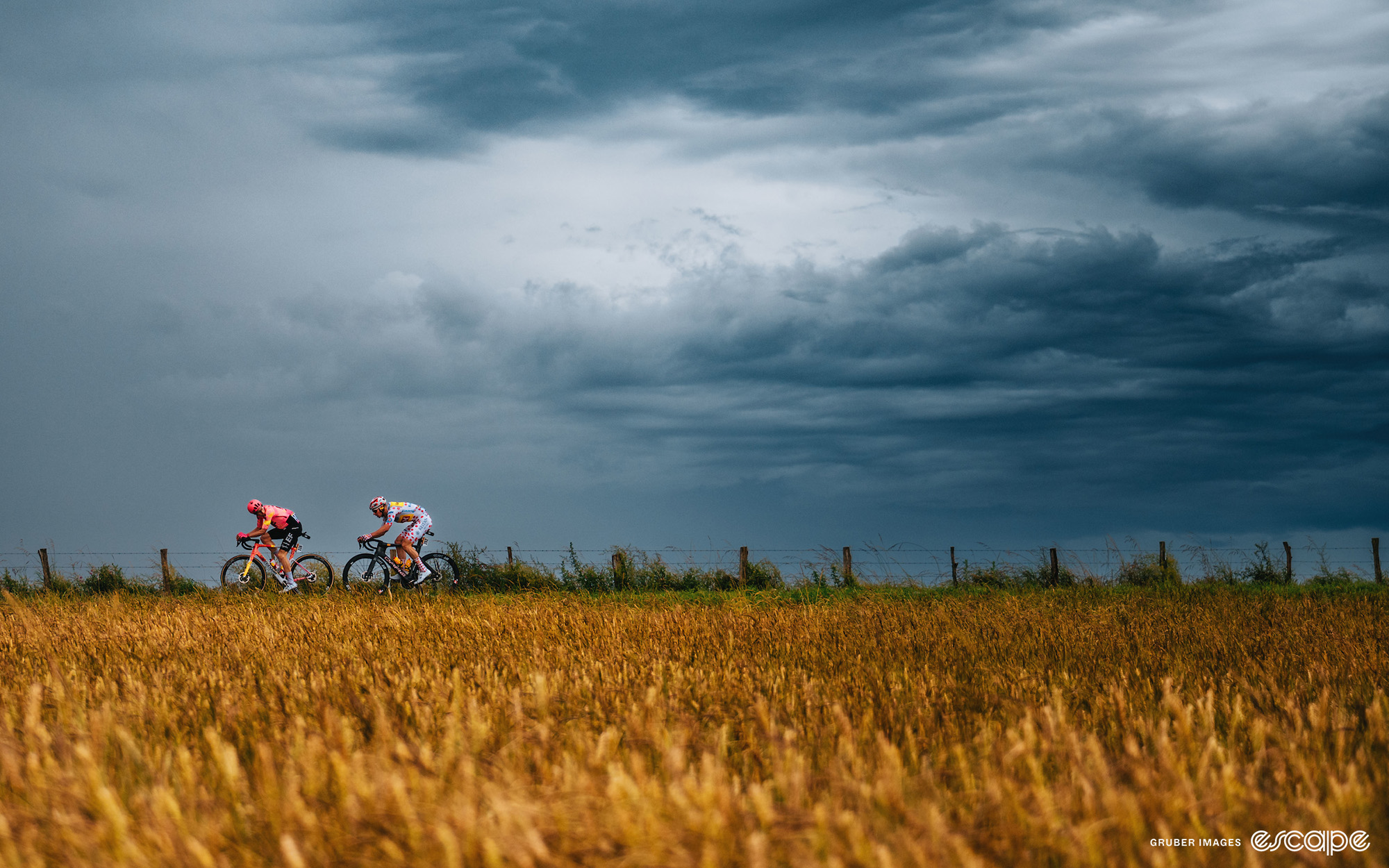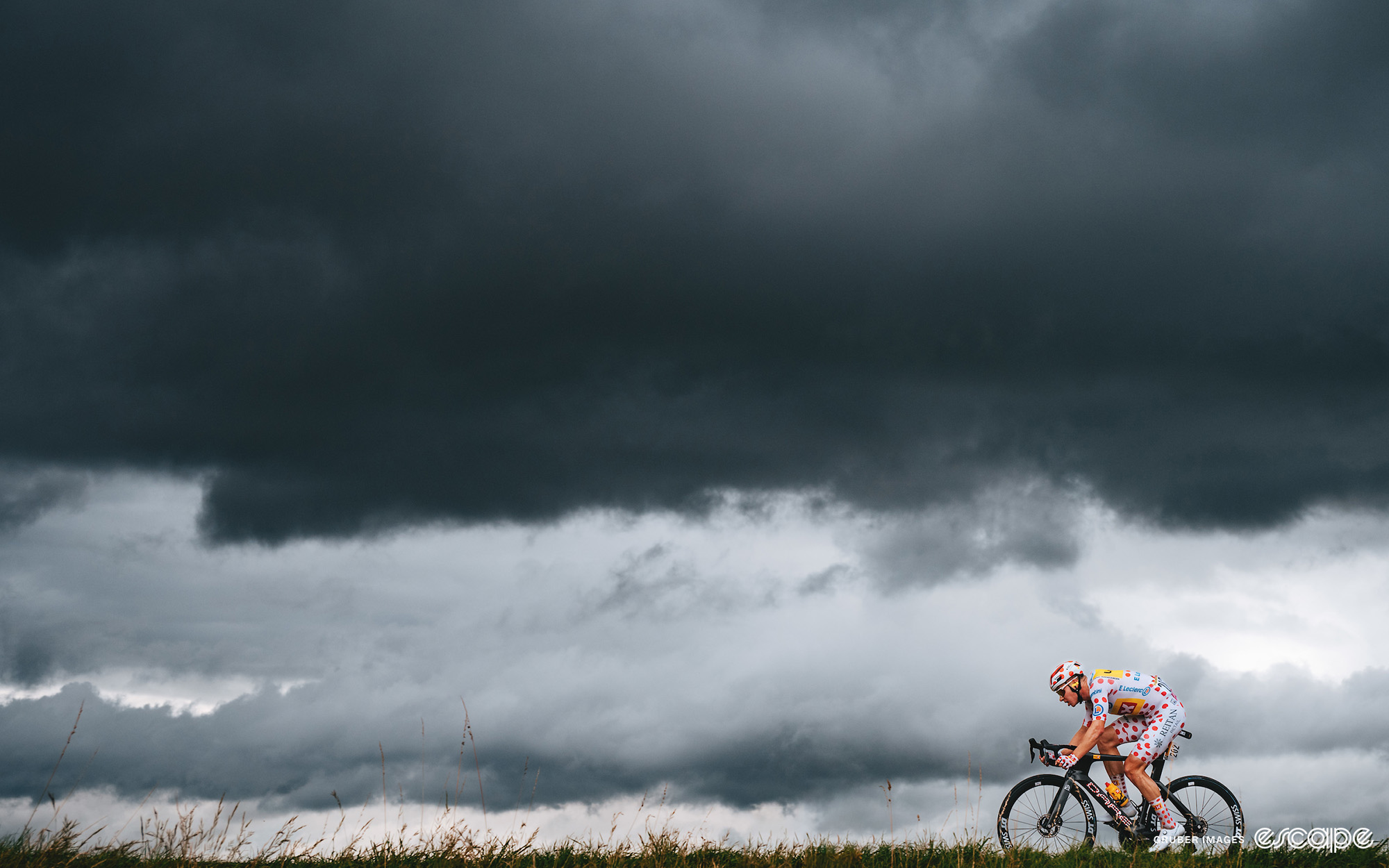Colombey Les Deux-Églises, FR — "It’s been a strange race so far, I can’t lie to you," EF Education EasyPost sports director Charly Wegelius begins, whilst eating a post-stage 8 boiled egg.
"Typically, in a race of this prestige, there’s plenty of people prepared to take even small chances, apparently not so, until now."
EF had sent two riders in Stefan Bissegger and Neilson Powless up the road in an exploratory effort, but relented when no one else joined, save for Uno-X Mobility's Jonas Abrahamsen, moreish for extra KOM points to add to his polka dot jersey lead.
"Not really sure why," Wegelius continued. "I can understand the actions of the teams controlling the race, but I’m not really sure, honestly, why more people aren’t risking a bit more. I guess that means that when they do go, it’s going to go in quite a brutal way."
Indeed, while we have grown used to seeing huge fights for the breakaways in the past couple of years, this year has so far been characterised by a near-complete apathy for probably doomed moves.
What about a second opinion from someone even closer to the action because he's actually in the bunch: Tadej Pogačar.
"I must say that this year's Tour de France is a bit strange," the Slovenian admitted after stage 7. "We had a fun first four days, but now this week is a little bit like there's nothing to look forward to. If there wasn't a time trial today, then it would be a really boring, strange Tour with flat stages where nobody wants to go in the breakaway."

So why? Why all this apathy? We are still waiting to hear back from TotalEnergies and Arkéa-B&B Hotels if they had someone who spoke English (don't worry, we hate ourselves too) to ask them why they weren't living up to their French team-ness, which traditionally at the Tour means hours upon hours off the front of the race delivering TV screen time to their sponsors.
Instead, we found ourselves the next best thing: another French team, Decathlon-Ag2r La Mondiale, a bit more successful but still French, and crucially with an English speaker on hand to explain what was going on.
So what was it? Most obviously, are more teams just bringing obvious GC or sprint candidates as part of their eight-man squads? Really, casting an eye down the start list, only TotalEnergies appears as a team without a discernible stage win direction to it.
"It's that, but it's also teams are a lot more analytical on what days the break can win," Decathlon-Ag2r La Mondiale coach Stephen Barrett (of Netflix Unchained fame) told us at the finish of stage 8.
"Also a lot of teams have their sprint guys and their GC guys but there's not many teams who come here with just a breakaway mindset because winning a breakaway in the Tour de France is getting more and more difficult. We've seen in previous years you've got to be one of the best climbers in the world, the best Classics guy in the world, you see last year with Pello Bilbao, Kasper Asgreen, Matej Mohorič, they're all the best guys in the world. So teams are more analytical in choosing the correct stages."
So stage 8 was a day that was nailed on to be hopeless?
"Today, was there a chance the breakaway could win? Yes, with the right group. We thought there might be a big fight at the start for a breakaway, in the end it didn't really happen, people thought it might be a punchier sprint finish and then we had some wind and rain ... every year there's less and less chance a breakaway guy wins a stage.
"You've got eight riders in a team so if you put one or two guys up the road that wastes energy for the following day. If a [main] guy needs help in a crosswind or if there's a split in the peloton, every team now looks at trying to conserve energy for their big goals. For us, if you go in a breakaway and get caught with 10 km to go and then you can't help your leader the following day ... especially because tomorrow is Troyes, 32 km of gravel, I think every team will be all hands on deck tomorrow. The reward to win is bigger but teams are also more calculated in taking risks at the right time."
So it's a dying art, you could say?
"Yes, I would say so. A dying art. But also it's more of a second- or third-week thing, where the GC guys are either in or not in GC and then teammates can become a bit more free. And now you have the best guys like Jonas, Remco and Tadej, everyone knows the top three to five spots are more difficult to break into, so teams are now fighting for 6th-10th on GC."

Lidl-Trek DS Steven de Jongh agrees that teams' optimisation for specifically GC and/or sprints, forsaking the sort of strong, plucky rider that captures the essential romance of the Tour, is a reason for this trend.
"I think the riders know when the breakaway has a chance," de Jongh explains, "and I think this year there are a lot of teams who have sprinters who have a chance to win a stage. There are so many teams with interest to close the gap down it makes it less attractive to be in the break because you feel your legs ... especially with tomorrow coming up ... then we'll see attacks."
But more than that, it's the openness of particularly the sprint days, in that there are many riders who can contest the victory, which is a major factor.
"It's the course, but also the sprinters here. If you have one dominant sprinter who's winning the whole year, all the bunch sprints, then maybe we see more attacks but now the chances are spread out and every team believes in their sprinter, lots of teams brought a sprinter and will not go in the break."
The difference will be when teams' plan A falls away and they have to go back to the drawing board. That's the case for Lidl-Trek, to some extent, with the loss of Mads Pedersen after stage 7.
"For sure, we will change tactics, we will always keep people around Ciccone because he's still there in the GC but on the days we think we have a chance we'll have people in the breakaways," de Jongh concludes.
So, there's the solid sporting argument against doomed breakaways at the Tour in 2024, even if it bucks the race's history. We wonder, though, how the financial overlords at TotalEnergies will react to three weeks without the requisite doomed break TV time they thought they were paying for.
Did we do a good job with this story?


